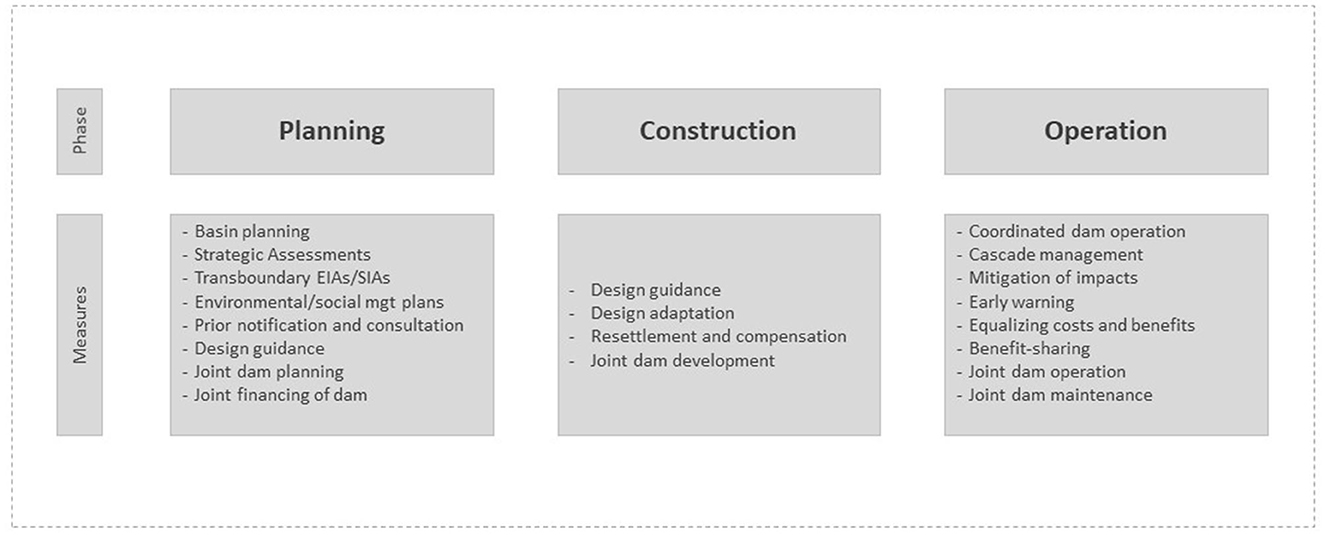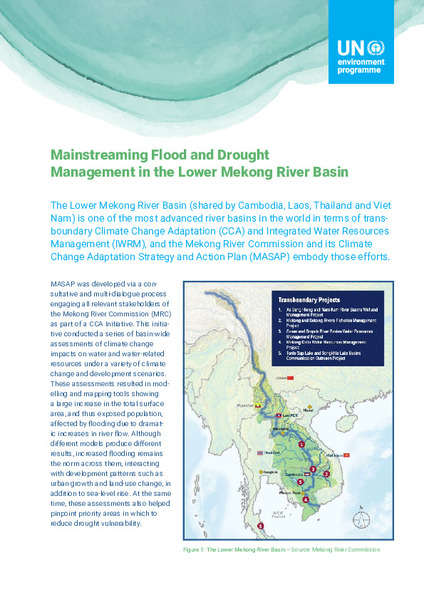Transboundary River Basin Governance: A Case of the Mekong River Basin
5 (781) In stock

Conflict and cooperation are key governance challenges in transboundary river basin governance, especially in the Mekong River Basin. Hydropower dams have been at the center of such a conflict and cooperation that are useful metrics to assess the level and intensity of conflict and cooperation in transboundary river basin governance. This study examines transboundary river basin cooperation in the Mekong through the lens of hydropower dam projects. It uses a literature review and a case study of the Lower Sasan 2 (LS2) Dam to analyze the conflict and cooperation in the Mekong region, from the era of the US influence in the Cold War, the post-Cold War period, and the present-day with the rise of China. It concludes that Mekong river basin cooperation has evolved as a result of external influences and internal competition by riparian states over Mekong resources. The LS2 was identified in 1961 by US-supported hydropower studies and then by the GMS/ADB in 1998, but left unattended until 2007 when Vietnam signed an agreement with Cambodia to undertake a feasibility study in 2008. It took 16 years to get the LS2 built by a Chinese company in 2014 and completed it in 2017. Through the process, the states, powerful external actors, financial institutions, and private sector actors have politicized the LS2 studies, design, and construction. Cambodia, as a weak downstream state, has had to and must continue to position itself strategically in its relationships with these hydro-hegemons to compete for hydropower dam projects and protect its interests. The rise of China has induced the changing relationship between riparian states. Many hydropower dams were built with Chinese funding. Cambodia has also enjoyed its close ties with China, and the building of the LS2 dam by a Chinese company contributes to changing its positions in the Mekong cooperation but suffers environmental and social impacts.

Robust river governance key to restoring Mekong River vitality in face of dams

Frontiers The role of institutionalized cooperation in transboundary basins in mitigating conflict potential over hydropower dams

China, An Upstream Hegemon: A Destabilizer for the Governance of the Mekong River?: China and the Mekong River

Sustainability, Free Full-Text

Transboundary River Basin Governance: A Case of the Mekong River Basin - የዓባይ ፡ ልጅ

Important Criteria of Sustainable City Tourism Among Stakeholders

Important Criteria of Sustainable City Tourism Among Stakeholders

Mainstreaming Flood and Drought Management in the Lower Mekong River Basin

Negotiating for Water Resources: Bridging Transboundary River Basins: Haefner, Andrea: 9780367000257: Books
About UMRBA Upper Mississippi River Basin Association
Yakima Basin Overview - Yakima Basin Fish and Wildlife Recovery Board
Basin Maps • Mackenzie River Basin Board
Map of the Nelson Churchill River Basin with major sub-basins, rivers
USGS Selects Willamette River Basin as Fourth Integrated Water Science Basin





